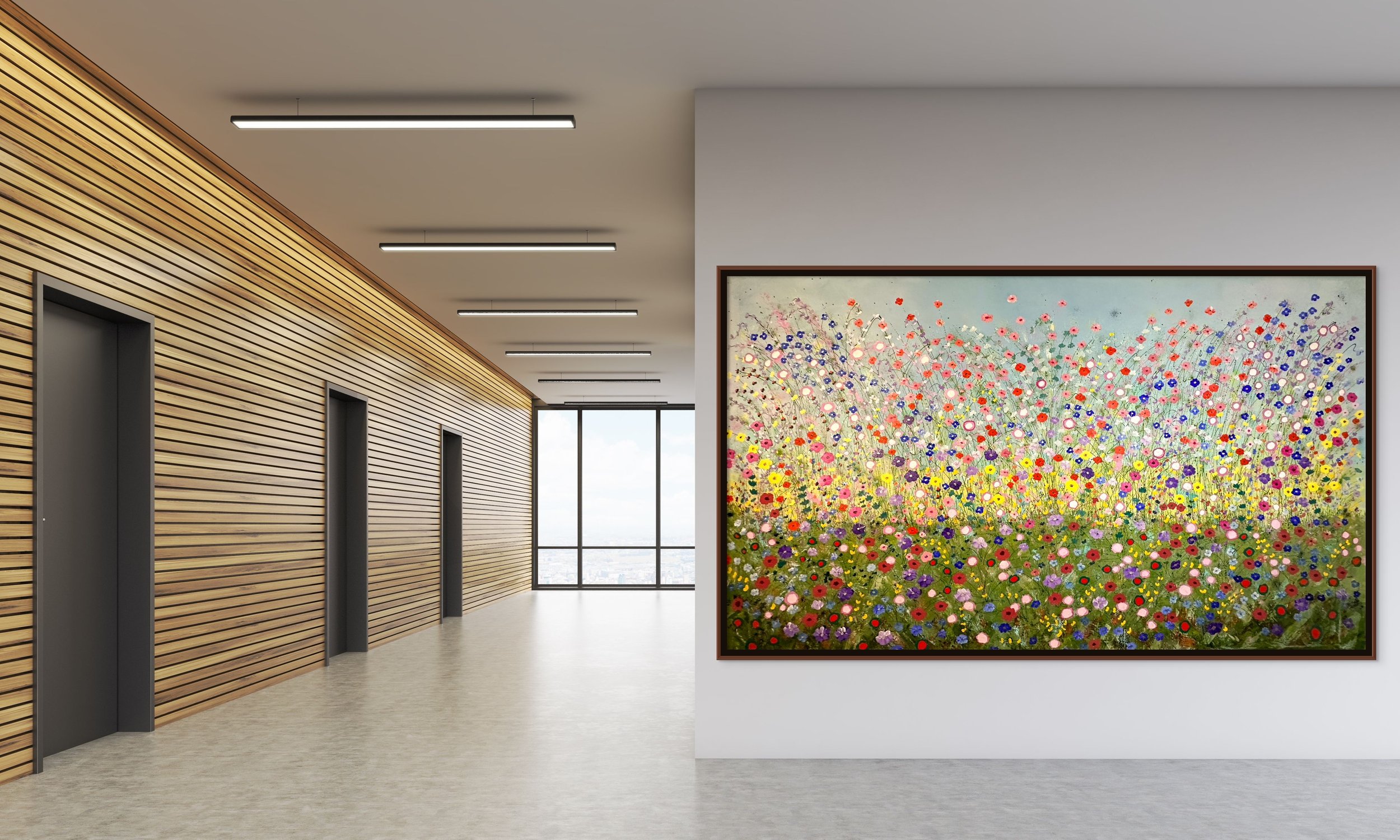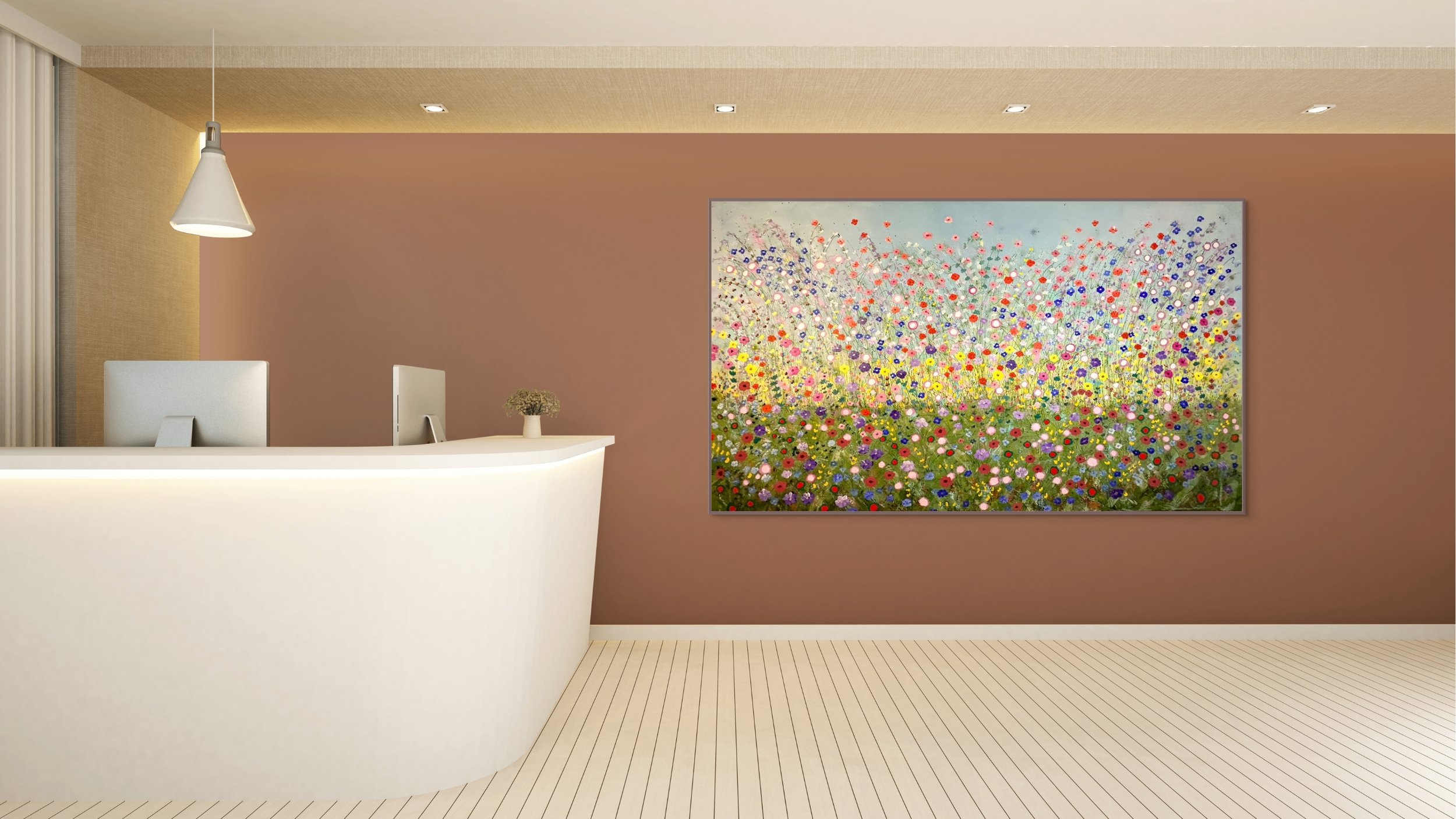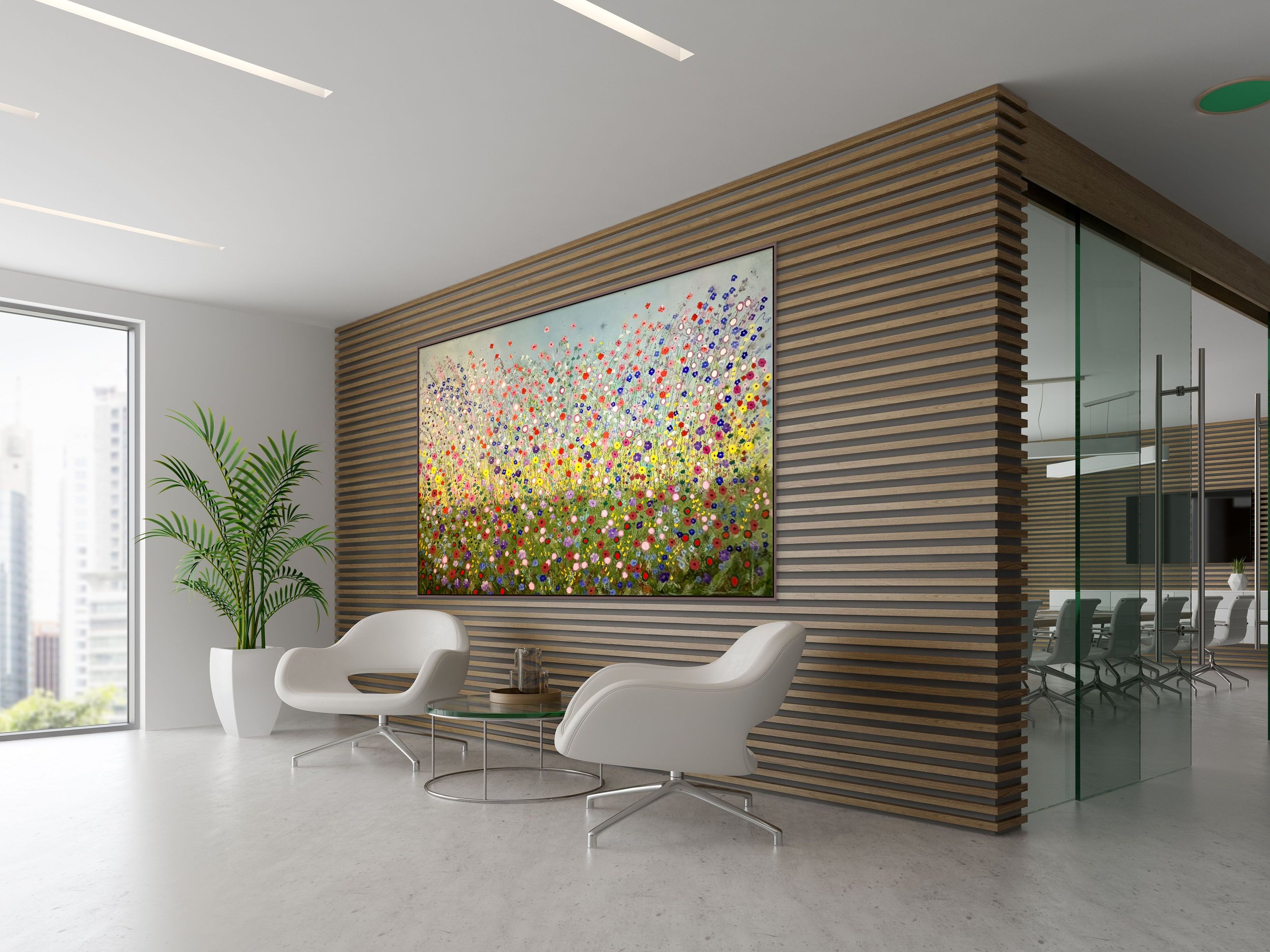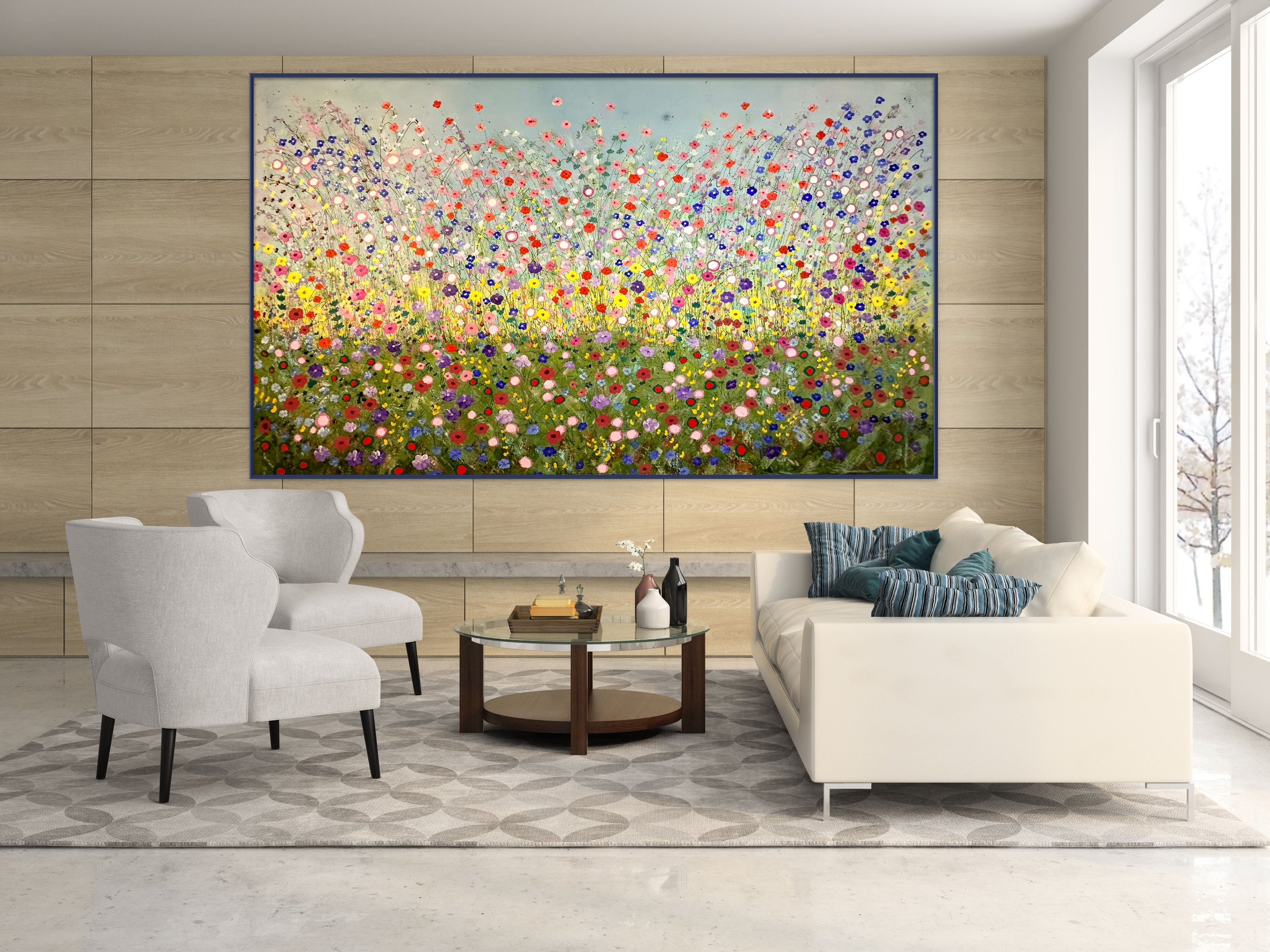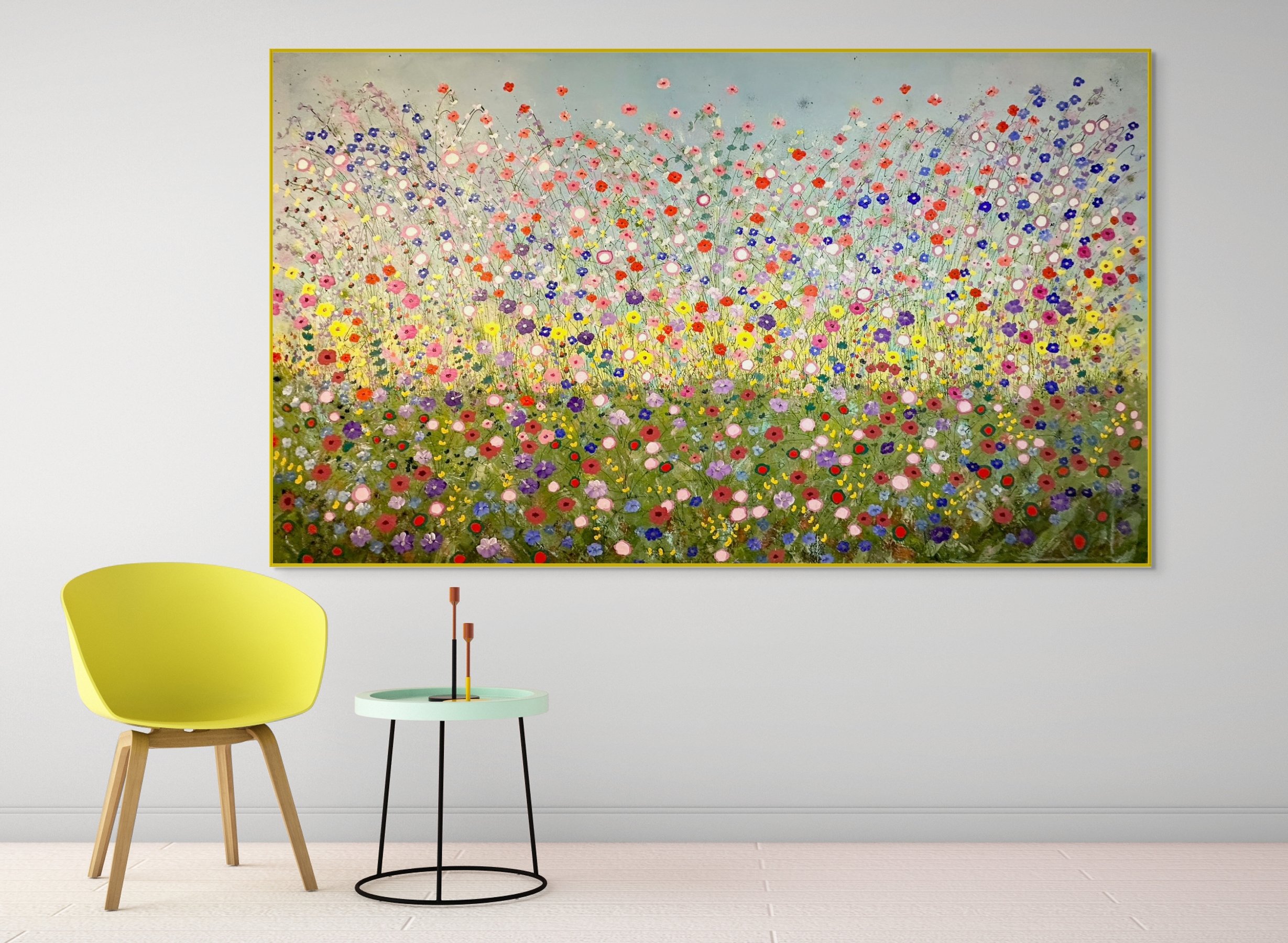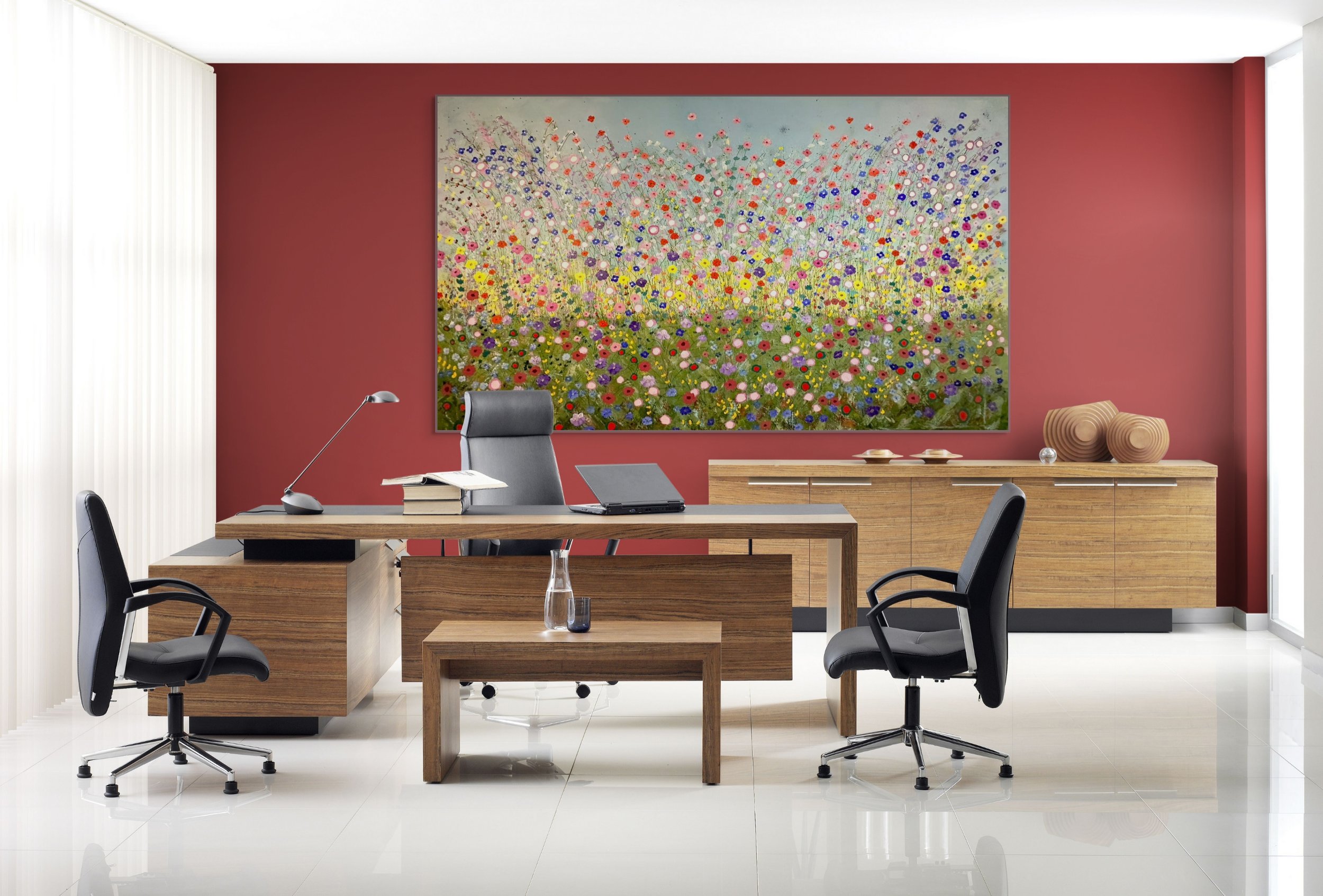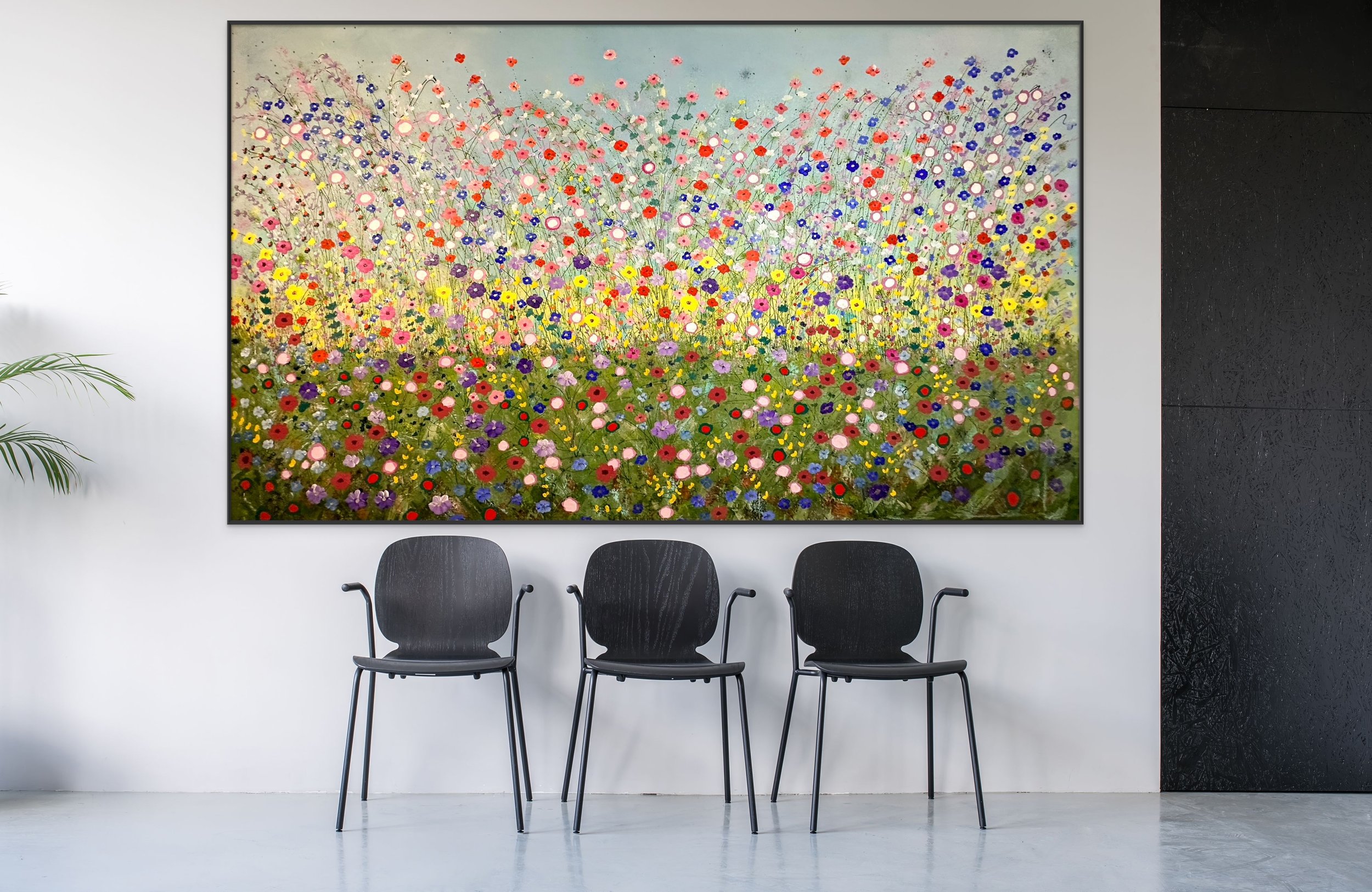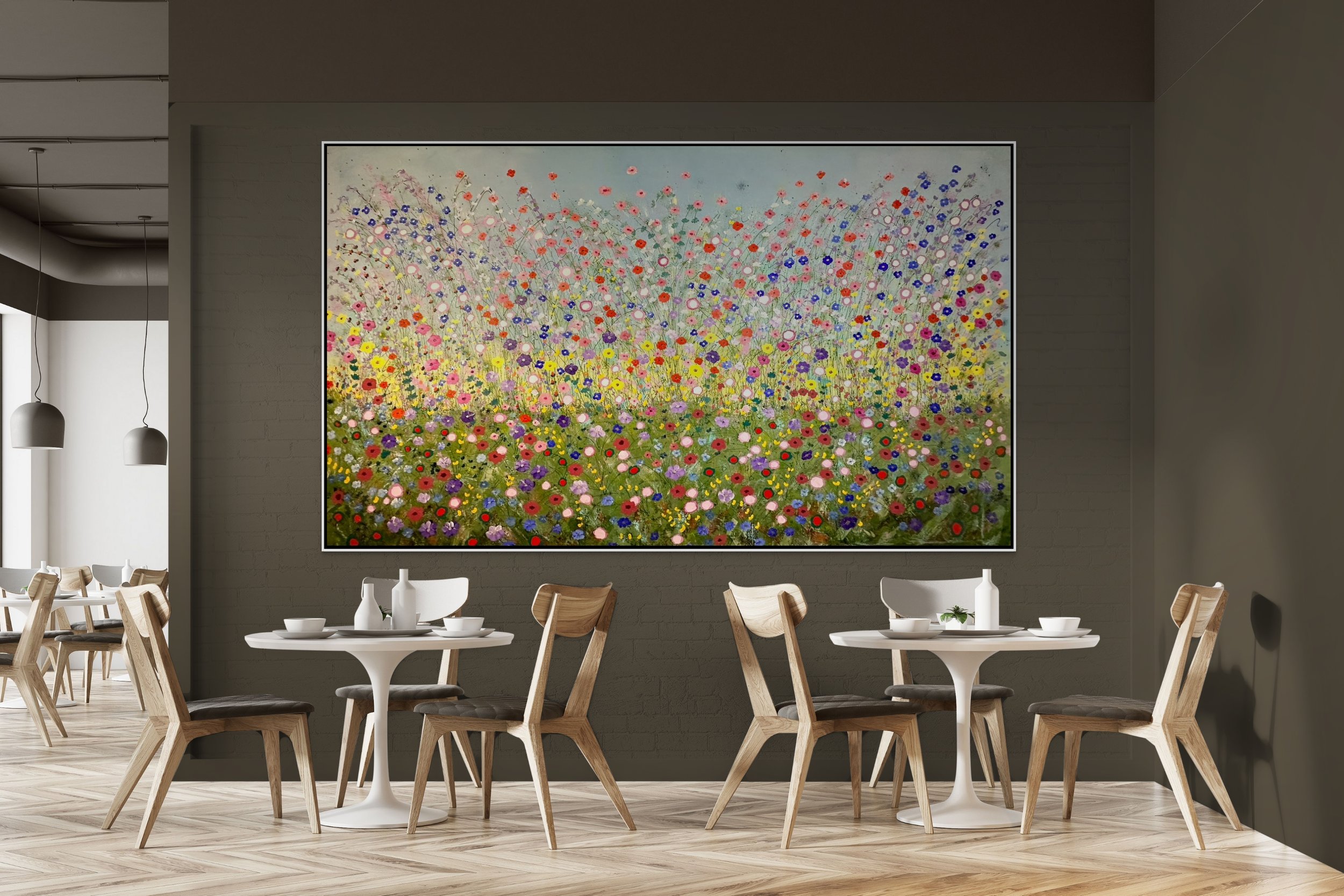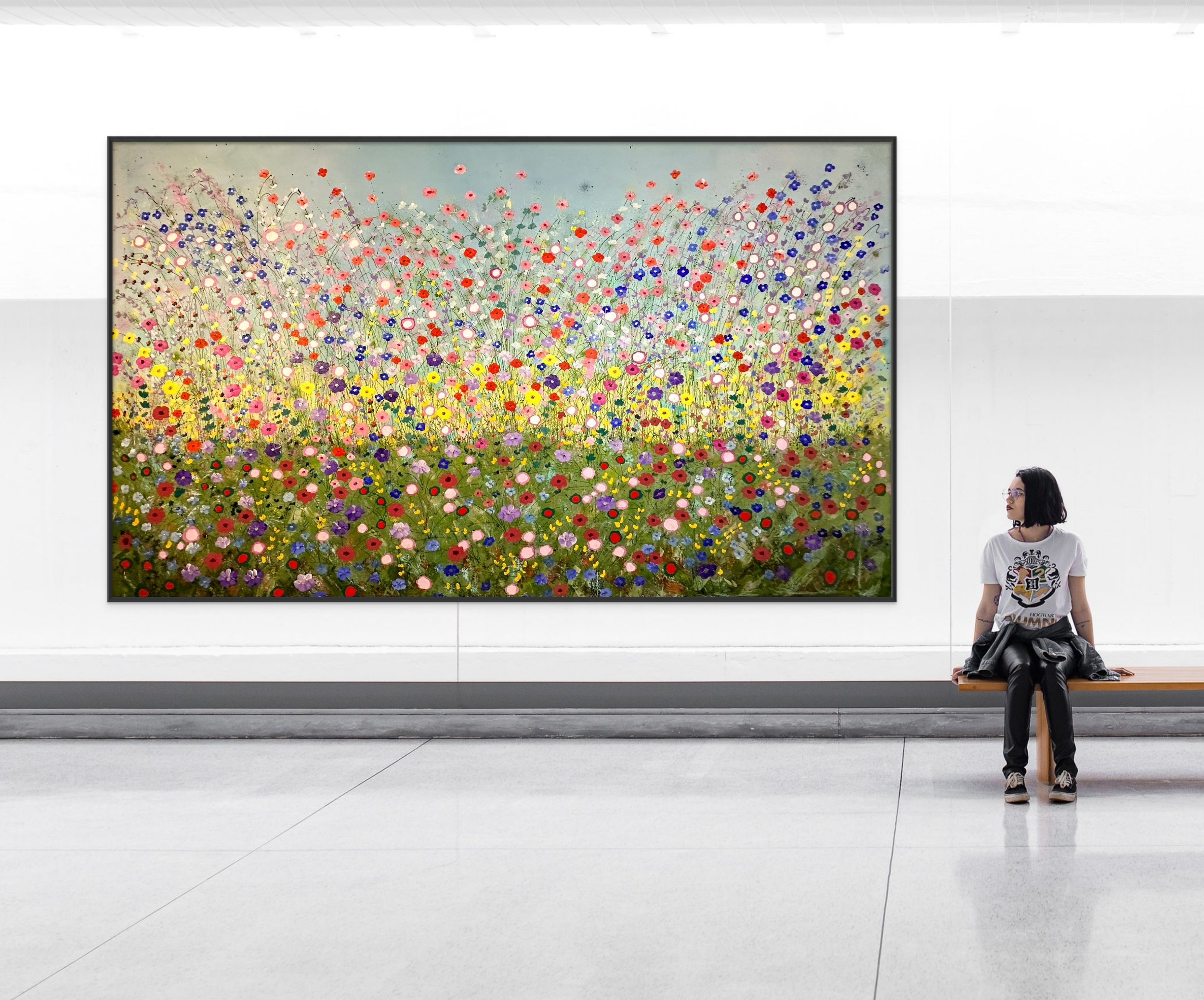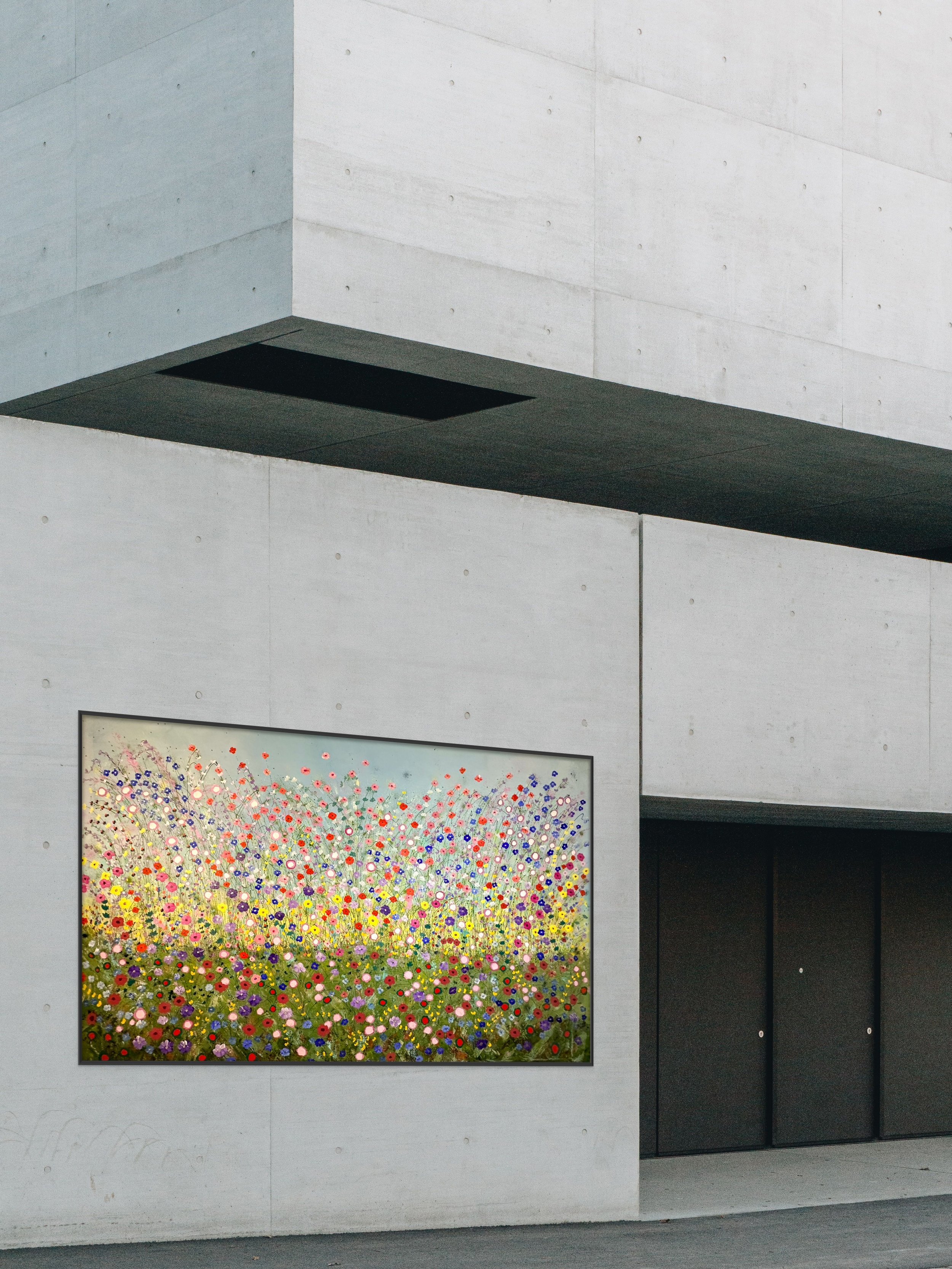Did You Know This About Art And Health?
Did you know many evidence-based design paintings focus on the impact the art has on the brain?
Did you know many evidence-based design paintings focus on the impact the art has on the brain?
The focus of this painting is not the art. The purpose of this piece is to create an uplifting mood of peace and happiness.
Wildflower Wonderland by Dorothea Sandra, EDAC (60”x96”)
The painting above is an evidence-based design floral that incorporates information from many medical and scientific research studies on the brain, art, and health.
The question should be, “Does this painting make viewers feel uplifted and happy?”
What matters most is that the piece triggers the brain to create chemicals that actually produce happy feelings.
Today we have fabulous technology to study the brain and see how art impacts it. In 2023, I was interviewed by the International + Mind Lab at the Center for Applied Neuroaesthetics, Pedersen Brain Science Institute at the Johns Hopkins University School of Medicine for my work creating evidence-based design art.
The principal investigator of the study I was in, Susan Magsamen, is a leader in this field and in her book, Your Brain on Art, How the Arts Transform Us, she writes: “New research, discoveries, and applications continue to mount. The sheer magnitude of this work is exceptional, and it promises to continue to accelerate. In the near future, as ever-more-sophisticated neuroaesthetic research becomes capable of measuring the effect of the arts on neural networks and those 600-plus mechanisms already identified, we will know more about how the arts affect us and how they can further benefit every aspect of our lives.” (p231)
During my interview with the Johns Hopkins University School Of Medicine team, I emphasized that while I am creating evidence-based design paintings, my primary focus is not on creating beautiful art.
My focus while I am painting is to use established evidence-based design guidelines and principles to create art that impacts the brain so happy chemicals (like dopamine) are created.
With today’s evidence-based design art, the question isn’t, “Do you like this?” The question is, “How does this painting make you feel?”
Take A Peek Inside My Book, 100 DAYS OF HAPPY HAPPY ART, EVIDENCE-BASED DESIGN.
Click the book cover to view.
Did You Know This About Art And Health?
Did you know many evidence-based design paintings focus on the impact the art has on the brain?
Did you know many evidence-based design paintings focus on the impact the art has on the brain?
The focus of this painting is not the art. The purpose of this piece is to create an uplifting mood of peace and happiness.
Peace And Happiness by Dorothea Sandra, EDAC (60”x96”)
The painting above is an evidence-based design floral that incorporates information from many medical and scientific research studies on the brain, art, and health.
The question should be, “Does this painting make viewers feel uplifted and happy?”
What matters most is that the piece triggers the brain to create chemicals that actually produce happy feelings.
Today we have fabulous technology to study the brain and see how art impacts it. I was recently interviewed by the International + Mind Lab at the Center for Applied Neuroaesthetics, Pedersen Brain Science Institute at the Johns Hopkins University School of Medicine for my work creating evidence-based design art.
The principal investigator of the study I was in, Susan Magsamen, is a leader in this field and in her book, Your Brain on Art, How the Arts Transform Us, she writes: “New research, discoveries, and applications continue to mount. The sheer magnitude of this work is exceptional, and it promises to continue to accelerate. In the near future, as ever-more-sophisticated neuroaesthetic research becomes capable of measuring the effect of the arts on neural networks and those 600-plus mechanisms already identified, we will know more about how the arts affect us and how they can further benefit every aspect of our lives.” (p231)
During my interview with the Johns Hopkins School Of Medicine team, I emphasized that while I am creating evidence-based design paintings, my primary focus is not on creating beautiful art.
My focus while I am painting is to use established evidence-based design guidelines and principles to create art that impacts the brain so happy chemicals (like dopamine) are created.
With today’s evidence-based design art, the question isn’t, “Do you like this?” The question is, “How does this painting make you feel?”
Take A Peek Inside My New Book, 100 DAYS OF HAPPY HAPPY ART, EVIDENCE-BASED DESIGN.
Click the book cover to view.






